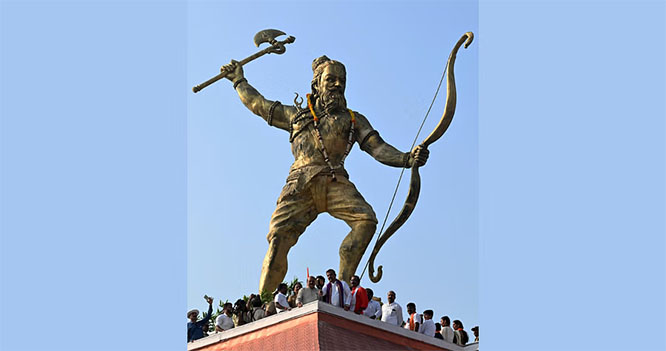Geneva, Sept 12: Prime Minister Narendra Modi led-NDA government of India on Tuesday reacted strongly to remarks made by UN High Commissioner for Human Rights Zeid Ra'ad Al Hussein on the issue of deportation of Rohingya Muslims.
Ambassador Rajiv K Chander, the Permanent Representative of India to the United Nations, expressed disapproval of the remarks of Al Hussein, who had criticised New Delhi's current measures to deport Rohingyas "at a time of such violence against them".
Al Hussein had deplored India's measures to deport the Rohingya refugees, noting that "nearly 40,000 had settled in India and 16,000 of them had received refugee documentation."
"We are perplexed at some of the observations made by the High Commissioner in his oral update. There appears to be inadequate appreciation of the freedoms and rights that are guaranteed and practiced daily in a vibrant democracy that has been built under challenging conditions. Tendentious judgments made on the basis of selective and even inaccurate reports do not further the understanding of human rights in any society," Rajiv K Chander said.
Chander further said that like many other nations, India is concerned about illegal migrants, in particular, with the possibility that they could pose security challenges and added that enforcing laws should not be mistaken for lack of compassion.
Chander then pointed at the issue of Kashmir and said, "We have also noted that the issue of human rights situation in Jammu and Kashmir has been raised. It is a matter of regret that the central role of terrorism is once again being overlooked. Assessments of human rights should not be a matter of political convenience."
"India believes that achieving human rights goals calls for objective consideration, balanced judgements and verification of facts. Our government's motto of 'Sabka Saath, Sabka Vikas' is a true reflection of our commitment to achieve inclusive development in the spirit of leaving none of our citizens behind," he added.
"It is also surprising that individual incidents are being extrapolated to suggest a broader societal situation. India is proud of its independent judiciary, freedom of press, vibrant civil society and respect for rule of law and human rights. A more informed view would have not only recognized this but also noted, for example, that the Prime Minister himself publicly condemned violence in the name of cow protection. India does not condone any actions in violation of law and imputations to the contrary are not justified," he said.








Comments
If a prime minister condemn on certain issues and does not take any preventive measures to stop it then it is useless.
Add new comment